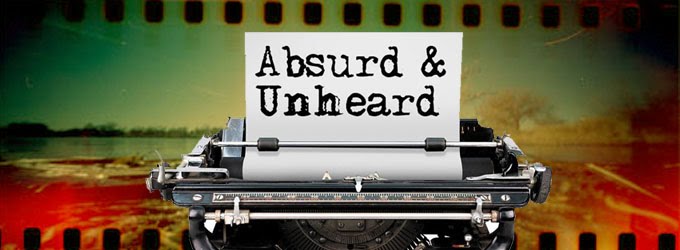
Disclaimer: Any mention of “stealing”, “pirating”, or “illegally copping” within this article was included for affect only and should not be regarded as truth. To those reading, I always pay for my music because I understand the legal sanctions against breaking copyright laws.
My birthday just passed and I used some of my birthday money to go out and purchase new books. Gone are the days of using birthday money to buy as many music CDs possible. Now, while I read a new book, my bittorrent program is active, downloading all the Metallica and Dr. Dre albums available (Napster reference; come on, it was my 25th birthday). Some might look down on me for my Captain Hook'esque actions; however, I do not care. They might say, “You are ripping off hard working artists. They are going to stop creating music if you don’t continue buying the albums”. To that I say what I always say when faced with questioning (or when inciting the drunk), “prove it!”
I know people might claim that by illegally coppin' the latest gangsta rap album I am taking money from the artist (because most people consider gangsta rap true art). In reality, it is taking money from the music label (ie: the man). It is these music labels and production companies that are exploiting musicians to begin with. I remember hearing somewhere that on twenty dollar CD, the artist makes something like one dollar. The rest of the money gets dropped into the lap of a greedy corporation who uses the money to exploit other helpless artists. Musicians know that the key to their fortune lies in a successful tour. Hell, you see 80 year old men who haven’t had a hit song in 20 years touring and making money (I saw Lynyrd Skynyrd and the Styx this summer. Note: Lynyrd Skynyrd died in a plane crash and I still paid money to see them!). Live performances are what I pay to see. The CD is the preview; it is a way for me to learn the songs so when I go to the concert I can sing along. Artists this summer alone have probably made more money off me then in my total years previous, even when I was buying albums at an alarming rate. Since April I have seen 15 major artists live, with 2 more shows planned for next month (that’s what I thought critics).
I do not see my blatant theft and total disregard for any copyright laws as a method of ripping off of an artist. I see it as their opportunity to gain a fan in me (I am helping the artist by listening to their music without their consent). That is the beauty of the Internet; it allows artists to get their art to a wider audience. People may doubt that power, however just look at the recent trend of YouTube sensations receiving record deals. The exposure works on another level as well. Radio stations can no longer dictate the trends in music. The chains are off and we as listeners are now free to search and download all different types of music that we, 1) may not hear on the radio, and 2) may not have known we enjoyed. An example of this takes me to my new found love for the UK singer/song writer Kate Nash. Although I had heard of her a few years ago and heard some of her music, I can say I probably would never have purchased one of her albums. It honestly just did not seem like something I would be interested in. After downloading the album and listening to it from start to finish, I absolutely love it! Although I will probably still would never purchase one of her albums (for different reasons), she has a new fan, one that doesn’t mind spending a good chunk of change on her live show if she comes to Eastern Ontario (again?).
Radiohead released their album In Rainbows last summer with the premise “pay what you want”. As usual Radiohead is a head of their time and most other bands are yet to follow; however, the idea is still there. The “man” killed Napster and made its corpse into a capitalistic venture. The “man” has been steadily fighting to keep down P2P (peer-to-peer) file sharing like it’s some kind of woman in the workplace (read that in the context of the show Mad Men to avoid any offence). Luckily we have some powerful weapons left. Through the capacity to stream music and the world of torrents, active listeners can fight back against the malice that is paying for music. However, like any social movement we still have our challenges a head of us. Streams can be slow and unreliable, and with torrents there is always that risk of contracting a life threatening virus (computer virus). In conclusion, it is up to us to keep up our pirating, at least until other artists can follow Radiohead's innovative ways (i.e. Giving us free shit).
By: Aaron Bawn

1 comments:
from one blogger to another; i like this.. and you.
Post a Comment